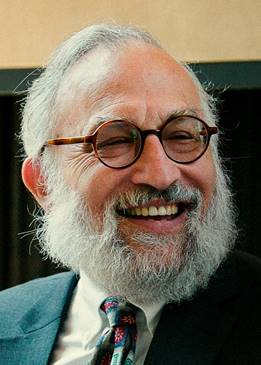For the last several years, we have witnessed an ongoing battle around the International Holocaust Remembrance Alliance (IHRA) definition of antisemitism. It was developed to provide guidance on what constitutes antisemitism but was explicitly not intended to be made into law.
The definition itself is not problematic:
Antisemitism is a certain perception of Jews, which may be expressed as hatred toward Jews. Rhetorical and physical manifestations of antisemitism are directed toward Jewish or non-Jewish individuals and/or their property, toward Jewish community institutions and religious facilities.
The examples[i] attached to it, however, have the effect of turning any opposition to Israel’s treatment of Palestinians or advocacy of a democratic one-state solution, or many other substantive criticisms, into being understood as antisemitism.
Of course, this is not the only definition. A large group of illustrious Jewish scholars cooperated to produce a different one in response to the IHRA definition. The Jerusalem Declaration on Antisemitism states:
“Antisemitism is discrimination, prejudice, hostility or violence against Jews as Jews (or Jewish institutions as Jewish).”[ii]
The Declaration specifically disagrees with the IHRA definition because it is too Israel-centric in its accompanying examples.
Many mainstream Jewish organizations utilize the IHRA definition. These include AIPAC, the Anti-Defamation League (ADL), American Jewish Committee, Jewish Federations of North America and many others. That approach has been strongly resisted by more liberal organizations, including J Street, Americans for Peace Now, Israel Policy Forum and others. This conflict resulted in the inclusion of both definitions in the new antisemitism policy of the U.S. government.[iii] The substantial lobbying efforts of the mainstream organizations, however, have resulted in the IHRA definition being written into state laws around the United States despite the explicit statement accompanying the IHRA that it is not intended to be written into law.
One consequence of using the IHRA definition is that many forms of legitimate Israel criticism are considered antisemitic. Indeed, all forms of anti-Zionism are antisemitic by IHRA definition. The original objection to this direction was that it stifled debate about Israel in the American Jewish community. It has the effect of delegitimizing any group that offers a strong critique of Israel. It places many decent, thoughtful, justice-seeking committed Jews into the category of antisemite, which means such people can be dismissed out of hand as being beyond the pale. Writing Jews out of the Jewish community because of their political views is destructive to the fabric of the Jewish community.
Jewish students indoctrinated by the IHRA definition experience criticism of Israel as antisemitic, undermining their sense of safety in a highly destructive way.
Since the abominable actions of Hamas on Oct. 7, a much more calamitous consequence of the IHRA definition has come into view. Making all anti-Zionism into antisemitism has the result of blurring the distinction between the two. On college campuses, Jews understand “From the river to the sea,” for example, not only as a demand for freedom for Palestinians (its original meaning before Hamas began to use it) but also as an attack on all Jews. Having spent some time talking with college students involved in these demonstrations, I believe that the vast majority are not antisemites. But Jews indoctrinated by the IHRA definition experience them that way, undermining Jewish students’ sense of safety in a highly destructive way.
ADL is a major keeper of statistics on antisemitism in the United States. Since it uses the IHRA definition, anti-Israel activity is routinely included as antisemitism in its statistics. This has resulted in a huge swelling of its statistics on antisemitism in the aftermath of Oct. 7. But a significant amount of that swelling is due to ADL’s conflation of the two.
A third consequence of this conflation is that the definition willy-nilly turns every Jew into a Zionist. This makes it possible for anti-Zionists to see every synagogue as a Zionist bastion. For anti-Zionist vandals, the IHRA definition makes synagogues, Jewish schools and Jewish community centers targets.
Some leftist critics of Israel are indeed antisemites, but their number has been considerably exaggerated. In my experience, the greater danger is on the right.
About 70% of American Jews support a two-state solution to the conflict between Israelis and Palestinians. A high percentage opposes the policies of the Netanyahu government as well. The IHRA definition increases the difficulty of an already fraught conversation about Israel.
Lest I be misunderstood, let me say clearly that some leftist critics of Israel are indeed antisemites, but I believe that their number has been considerably exaggerated. In my experience, the greater danger is on the right. On the right, neo-Nazis, successors of the Ku Klux Klan, insurrectionists and other groups have been increasingly open and empowered as a result of the kind of white supremacist, Christian patriarchal rhetoric that Donald Trump and his allies have spread through the Republican Party. They are the ones most to be feared.
[i] See What is antisemitism? (holocaustremembrance.com)
[ii] See The Jerusalem Declaration on Antisemitism | JDA
[iii] U.S.-National-Strategy-to-Counter-Antisemitism.pdf (whitehouse.gov)








2 Responses
Thank you for writing this, David. It accords with my understanding of this issue as well. We are living in a difficult moment, to be sure.
I would like to see a discussion and definition of Anti-Zionism, because that is the space that generates most confusion about anti-Semitism. Not a discussion of criticism of Israel– I don’t see why we have to keep saying that criticism of Israel is neither antisemitism or antiZionism. That is by now axiomatic. But then what is anti-Zionism. ?